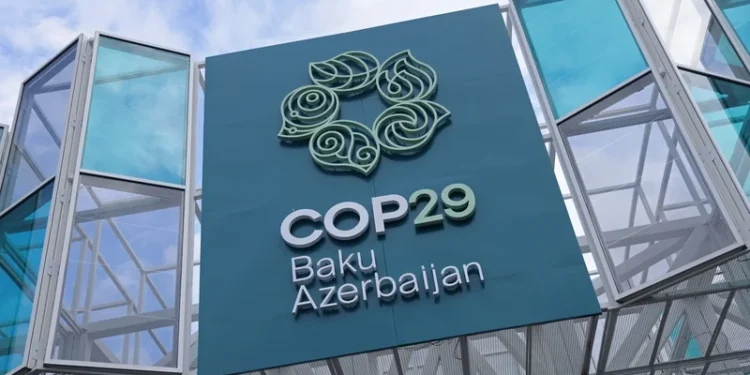The 29th Conference of the Parties (COP29) to the United Nations Framework Convention on Climate Change (UNFCCC) has officially kicked off in Baku, Azerbaijan, on November 11, 2024, with world leaders, policymakers, and activists coming together to address the escalating climate crisis. Running until November 22, the event aims to tackle urgent issues such as global warming, climate adaptation, sustainability, and climate finance.
COP29 marks a pivotal moment for the global community as extreme weather events continue to increase and global temperatures soar to unprecedented levels. The conference will provide a vital platform for advancing solutions to mitigate the impacts of climate change, as well as for discussing collective global responses and strategies for reducing greenhouse gas emissions.
Urgency of Climate Finance
A central theme of COP29 is the urgent need for climate finance, with the UN highlighting that trillions of dollars are required to assist countries in significantly reducing emissions while building resilience to climate-driven threats. This includes support for developing countries to make the necessary infrastructure investments to cope with extreme weather events.
The concept of the New Collective Qualified Goal (NCQG), which was mentioned in the 2015 Paris Climate Accord, will take center stage at COP29. NCQGs aim to create an unprecedented flow of affordable capital for poorer nations to address their climate challenges. This financial strategy promises to unlock more than a trillion dollars per year to fund the transition to low-carbon technologies and climate resilience efforts.
The Global Divide: Developing Nations vs. Developed Nations
The issue of climate finance is particularly complex, as countries with rapidly growing economies, like China, Saudi Arabia, and the UAE, continue to be classified as developing nations. These countries are still eligible to receive climate finance under the current system, but there is growing pressure for them to contribute financially to the global effort.
Debates will undoubtedly arise over what constitutes a developing country and whether the wealthier oil-producing nations should continue receiving financial support or start contributing to global funding pools. This issue is expected to dominate discussions and negotiations over the next two weeks.
The Loss and Damage Fund: Where Will the Money Come From?
A major focus at COP29 will also be the Loss and Damage Fund, which was established in response to the devastation caused by climate change. This fund aims to provide financial assistance to nations most affected by extreme weather events. Delegates will have to tackle the pressing question of where the funding will come from and how to ensure that it reaches the countries that need it the most.
The Fossil Fuel Dilemma
Despite the global consensus that fossil fuel production is the primary driver of climate change, there is significant skepticism regarding the role of fossil fuel-producing nations in the COP process. Both Azerbaijan and the UAE have used their roles as hosts to secure lucrative oil and gas deals, raising concerns that such countries may prioritize their energy interests over meaningful climate action.
The challenge for COP29 will be ensuring that the conference moves beyond the interests of oil-rich nations and leads to concrete actions that combat climate change.
The Road Ahead: Can COP29 Deliver?
COP29 arrives at a critical juncture. While the conference will address vital issues such as emissions reductions, climate finance, and the global response to extreme weather events, it faces significant hurdles. The tension between developed and developing countries, the complexity of the financial mechanisms, and the influence of fossil fuel-producing nations make the outcome uncertain.
Can They Reach Effective Solutions to Combat the Climate Crisis?
As COP29 unfolds over the next two weeks, the world will be watching closely to see if global leaders can overcome their differences and deliver tangible solutions to combat the climate crisis. With the stakes higher than ever, it is crucial that the negotiations result in actionable commitments, robust financing mechanisms, and the political will to address climate change effectively. The outcome of COP29 could set the stage for a more sustainable future—or further delay the urgent actions needed to protect our planet.
Related posts:
COP28 Loss and Damage Fund Faces Uncertainties as Details Remain Unresolved
COP28 Dubai is Over: Four Key Highlights from the UN Climate Summit
Navigating the ‘Just Transition’: Implications and Challenges Post-COP28
Feast of Progress: COP28 Dishes Out Real Solutions for Agriculture and Climate Change
















